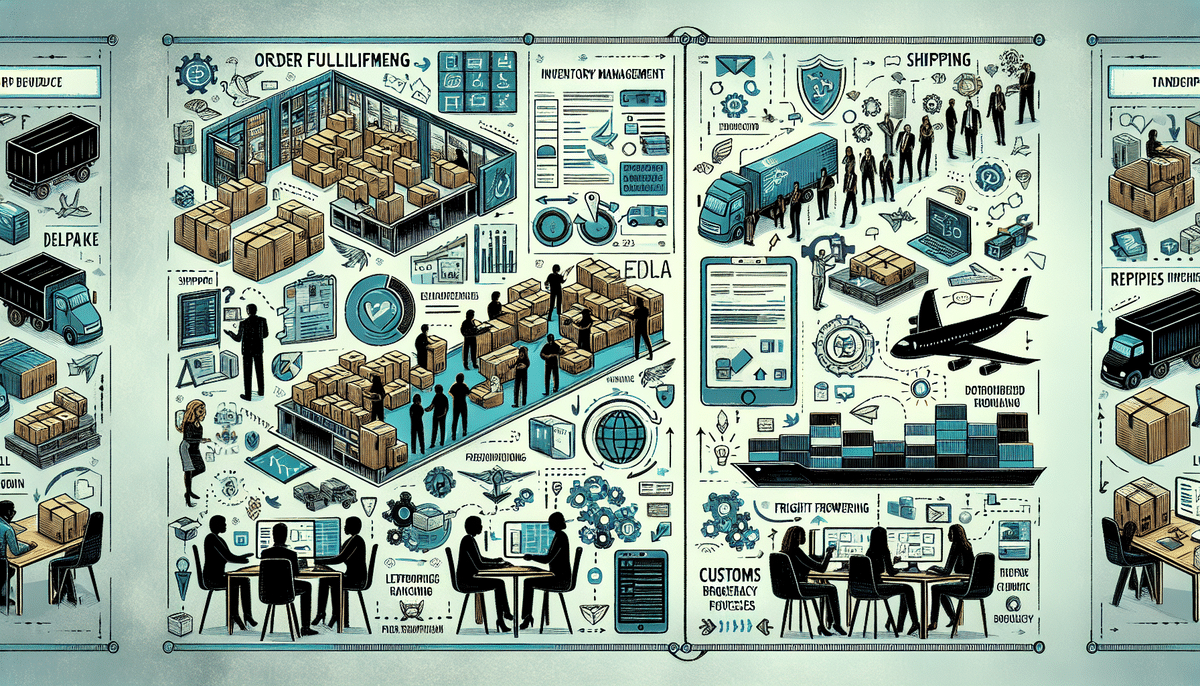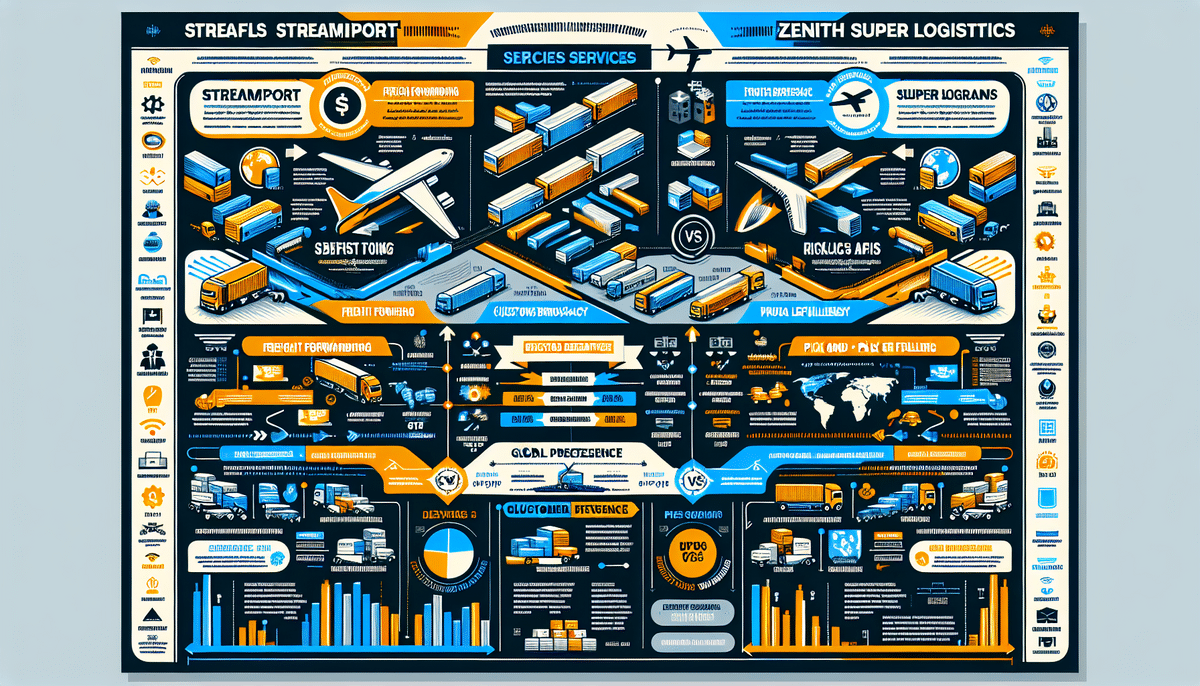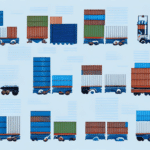Rakuten Super Logistics vs Flexport: Comprehensive SEO Optimized Comparison
When it comes to shipping logistics, businesses are always on the lookout for the most efficient and reliable solutions. Two of the biggest names in the logistics industry are Rakuten Super Logistics and Flexport. In this article, we’ll take an in-depth look at both companies, compare their services and features, and help you determine which one is the best choice for your business needs.
Overview of Rakuten Super Logistics
Rakuten Super Logistics is a fulfillment and shipping company offering businesses a range of logistics services, including order fulfillment, inventory management, and shipping solutions. Founded in 2001 and based in Henderson, Nevada, Rakuten Super Logistics aims to streamline order fulfillment operations and enhance customer experience by delivering products to end-users swiftly and efficiently.
Key Services Offered by Rakuten Super Logistics
- Order Fulfillment: Efficient picking, packing, and shipping of orders.
- Inventory Management: Real-time inventory tracking and management solutions.
- Kitting: Bundling multiple products into a single package, reducing shipping costs.
- Custom Packaging: Creating unique and branded unboxing experiences for customers.
- Returns Management: Handling product returns and exchanges efficiently.
According to a 2023 report by Forbes, Rakuten Super Logistics has seen a 20% increase in order fulfillment efficiency over the past year, leveraging advanced technology to enhance operations.
Overview of Flexport
Flexport is a global freight-forwarding and customs brokerage company offering comprehensive logistics services through its online platform. Founded in 2013 and headquartered in San Francisco, California, Flexport provides businesses with a cost-effective and efficient means of importing and exporting goods worldwide.
Key Services Offered by Flexport
- Freight Forwarding: Coordinating transportation of goods globally.
- Customs Brokerage: Ensuring shipments comply with international regulations and clear customs smoothly.
- Supply Chain Management: Optimizing supply chain operations through data-driven insights.
- Consulting Services: Providing expertise on logistics strategies and compliance.
- Real-Time Tracking: Offering real-time visibility into the movement of goods.
As highlighted in a 2023 Supply Chain Digital article, Flexport has expanded its global network by 30% in the last year, enhancing its capacity to serve a broader range of international markets.
Comparative Analysis: Rakuten Super Logistics vs Flexport
Similarities
- Both offer comprehensive logistics solutions tailored to businesses of various sizes.
- They provide advanced software tools for effective logistics management.
- Emphasis on customer satisfaction with dedicated support teams.
- Global presence with a network of warehouses and distribution centers worldwide.
Differences
- Service Focus: Rakuten Super Logistics specializes in fulfillment and warehouse management, while Flexport focuses on freight forwarding and customs brokerage.
- Target Market: Rakuten Super Logistics primarily serves small to medium-sized businesses, whereas Flexport caters to larger enterprises with global logistics needs.
- Technology Integration: Flexport emphasizes its technology-driven platform for supply chain visibility, while Rakuten focuses on efficient fulfillment processes.
- Pricing Structure: Flexport generally has higher fees, reflecting its comprehensive international services, compared to Rakuten’s more competitive domestic pricing.
Shipping Processes Compared
The Shipping Process at Rakuten Super Logistics
Rakuten Super Logistics’ shipping process starts with receiving and inspecting inventory at one of its fulfillment centers. Orders are picked, packed, and shipped within 1-2 business days. The company offers real-time tracking and reporting tools, enabling businesses to monitor orders and manage inventory effectively.
Additionally, Rakuten provides value-added services such as kitting, custom packaging, and returns management, which streamline operations and enhance the overall customer experience.
The Shipping Process at Flexport
Flexport’s shipping process involves coordinating with a global network of carriers to transport goods. Their digital platform allows customers to manage logistics operations, from booking shipments to tracking deliveries in real-time. Flexport also offers customs brokerage services to facilitate smooth customs clearance.
Flexport’s team of logistics experts collaborates with businesses to optimize supply chain operations, offering guidance on packaging, labeling, transportation modes, and routing to ensure timely and cost-effective deliveries.
Pros and Cons
Rakuten Super Logistics: Pros and Cons
Pros:
- Extensive network of US-based fulfillment centers.
- Dedicated account management team.
- Fast order fulfillment and shipping.
- Real-time tracking and reporting tools.
Cons:
- Less customizable software tools.
- Limited international shipping options.
- Smaller presence in global markets.
Despite these drawbacks, Rakuten Super Logistics is recognized for its exceptional customer service and efficient fulfillment processes, making it an ideal choice for businesses focused on domestic operations.
Flexport: Pros and Cons
Pros:
- Global network of carriers and partners.
- Transparent and user-friendly online platform.
- Comprehensive value-added services, including customs brokerage.
- Robust tracking and reporting tools.
Cons:
- Relatively higher fees compared to some competitors.
- Less direct control over the shipping process.
- Some communication challenges during peak seasons.
Flexport’s innovative technology and global reach make it a strong contender for businesses with international logistics needs, despite the higher costs associated with its services.
Pricing Comparison: Rakuten Super Logistics vs Flexport
The pricing structures of Rakuten Super Logistics and Flexport vary based on the services and features required. Generally, Rakuten Super Logistics offers more competitive pricing for domestic services, with options such as per-item pricing and monthly subscription plans. Flexport’s pricing tends to be higher, reflecting its comprehensive international services, including customs brokerage and global freight forwarding.
Businesses should assess their specific needs, including volume, shipping destinations, and required services, to determine which provider offers the best value for their investment.
Customer and Expert Reviews
Customer Reviews
Customers of Rakuten Super Logistics consistently praise the company for its fast and reliable shipping services and outstanding customer support. Flexport users appreciate the comprehensive logistics platform and the real-time visibility it provides, though some have noted higher costs and occasional communication issues during busy periods.
Expert Opinions
Industry experts recognize Rakuten Super Logistics for its robust domestic fulfillment capabilities, making it a preferred choice for small to medium-sized businesses. Conversely, Flexport is lauded for its global logistics solutions and technology-driven approach, positioning it as a leader for larger enterprises with complex, international supply chain requirements.
According to a 2023 report by Logistics Management, both companies excel in their respective niches, with Rakuten leading in domestic fulfillment and Flexport in global freight forwarding.
Conclusion: Choosing the Right Logistics Partner for Your Business
Both Rakuten Super Logistics and Flexport offer valuable logistics solutions tailored to different business needs. Rakuten Super Logistics is ideal for businesses seeking fast and reliable domestic shipping services, supported by a strong fulfillment network and excellent customer service. On the other hand, Flexport provides comprehensive global logistics solutions with advanced technology and a wide range of services, suitable for businesses operating on an international scale.
When deciding between the two, consider factors such as your target markets, budget, required services, and the level of technology integration you need. Conduct thorough research, evaluate your business requirements, and choose the logistics provider that best aligns with your operational goals and growth strategy.




















